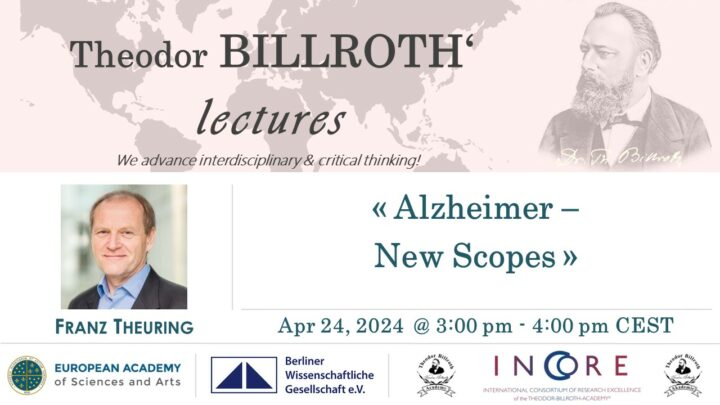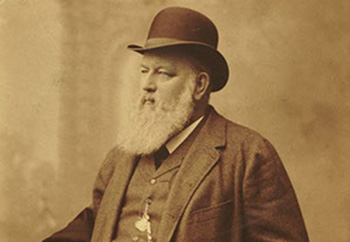Alzheimer – New Scopes
Speaker
Prof. Dr. Franz Theuring
Professor Franz Theuring, PhD, studied electronics and biology at the Universities of Brauschweig and Goettingen, Germany. He gained his PhD in 1986 in the Institute of Human Genetics, University of Goettingen, and was post-doctoral research fellow at the Max Planck Institute for Biophysical Chemistry. Professor Theuring was responsible for the establishment and introduction of transgenic technologies both in the MPI, and then from 1988 in the Institute of Cellular and Molecular Biology of Schering AG, Berlin, in areas of pharmacological research for drug target validation and disease model development.
Professor Theuring received his Habilitation from the Free University of Berlin in Molecular Biology and Biochemistry in 1996, and after 8 years at Schering AG, was appointed in 1996 to a Professorship in Molecular Pharmacology at the Charité – Universitaetsmedizin Berlin.
Prof. Theuring is an acknowledged expert in employing transgenic technologies in biomedicine. He was consultant to the Berlin State in Biotechnology, to the European Union in Molecular Medicine and to Pharmaceutical Industry. He was elected as Member of the Berlin Scientific Society (BWG) in 1999 and acted as the President from 2013-2017. In 2000, he spent 3.5 month on a sabbatical leave at the Centre for Animal Resources and Development (CARD) at Kumamoto University, Japan. Furthermore, he is the co-founder of two biotech companies, Proteome Factory, based in Berlin, and TauRx Pharma, based in Singapore. Since 2015 Prof. Theuring is engaged in activities of SPARK-BIH Berlin, an academic initiative to accelerate breakthrough findings into medicines, diagnostics and medical devices. From 2020-2021 he acted as co-director of the SPARK initiative. He retired at the end of 2020, but still is engaged in the SPARK-BIH activities.

AGENDA
Besides amyloid plaques one will find neurofibrillary tangles derived from Tau-aggregation products as a second hallmark in the brain of Alzheimer patients post mortem. The Tau protein is meant to stabilize microtubules in the brain. However, with increasing age it starts to aggregate into oligomers and finally forms neurofibrillary tangles, which forms inside the neurons. The toxicity mediated by this autocatalytic, self propagating process leads to the death of neurons and causes neurodeneration. With the identification of Methylene blue (MTC) acting as a Tau-aggregation-inhibitor back in the 90s of the last century, Prof. Claude Wischik from Aberdeen University had the idea to develop this histological dye into a therapeutic product. Tissue culture cells and the establishment of Tau-transgenic mice in my laboratory demonstrated the successful use of this compound to act therapeutically in vitro and in vivo. Clinical development of MTC in a phase II study and a more potent derivative (HMTM) in phase III studies will be reported and the detailed results presented.
LEARNING OUTCOMES
- Understanding the relevance of Tau aggregation products in the course of Alzheimer.
- Get insights into the development of Tau-aggregation-inhibitors such as Methylene Blue and its potent derivatives.
- Clinical trial set-up for testing Tau-aggregation inhibitors in Phase II and III programs.
"Our responsibility is, to the extent of our view into the future, to form the present felicitous for the next generation according to the best of our knowledge and belief”
Theodor Billroth (1829-1894)

